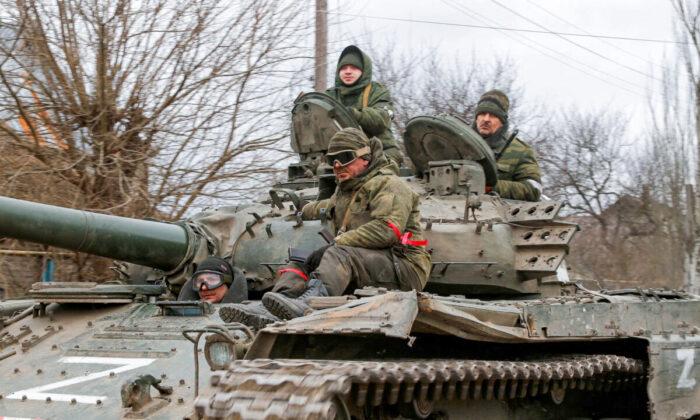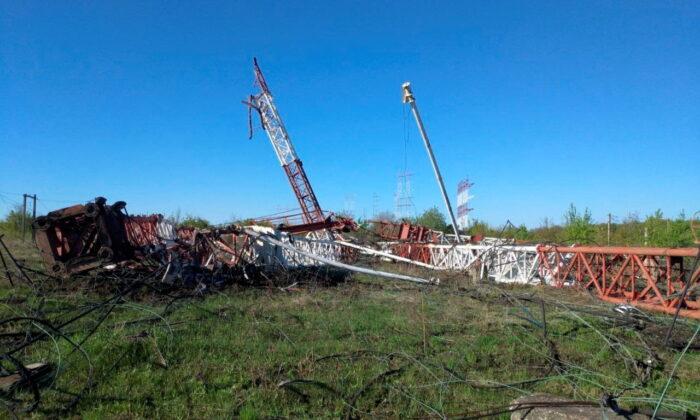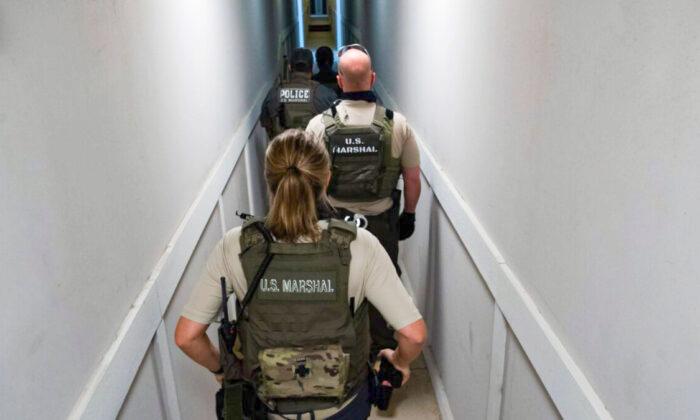The United States sent four surveillance planes over the Korean Peninsula on Dec. 25 after North Korean leader Kim Jong Un threatened President Donald Trump with a possible “Christmas gift,” saying that the Trump administration was running out of time to salvage nuclear negotiations.
This comes amid heightened tensions between the nations, as negotiations between U.S. and North Korean officials stalled when a summit earlier in 2019 between Trump and Kim abruptly came to a halt.
In a move described as unusual by the news agency, the aircraft flew as high as 53,000 feet above North Korea, according to the aviation tracking service Aircraft. The RC-135W flew at 31,000 feet, while the RC-135S took off from Japan’s Kadena Air Base and carried out missions over the East Sea, and a KC-135R refueling aircraft also flew over the East Sea.
It came a day after Pyongyang’s veiled threat, which warned the United States to decide what “Christmas gift” it would get, sparking fears the regime might be preparing an intercontinental ballistic missile test.
“We’ll find out what the surprise is, and we’ll deal with it very successfully. Everybody’s got surprises for me, but let’s see what happens. I handle them as they come along,” Trump joked on Dec. 24 at his Mar-a-Lago resort in Florida.
“Maybe it’s a nice present. Maybe it’s a present where he sends me a beautiful vase as opposed to a missile test. I may get a vase. I may get a nice present from him. You don’t know. You never know.”
Relations between Trump and Kim were strained further when the North Korean leader gave the United States until the end of 2019 to propose new concessions in talks over his country’s nuclear arsenal.
The two leaders have met three times since 2018, but there has been no substantive progress. North Korea has demanded an end to international sanctions while the United States says Pyongyang must first commit to give up its nuclear weapons.
In its warning, North Korea accused Washington of trying to drag out denuclearization talks ahead of Trump’s 2020 reelection bid. It said it was “entirely up to the United States what Christmas gift it will select to get.”
U.S. military commanders have said the North Korean response could involve the testing of a long-range missile, something North Korea has suspended, along with nuclear bomb tests, since 2017.
Trump has cited the test suspensions as evidence that his policy of engaging with North Korea works.
Pyongyang last tested an intercontinental ballistic missile—a Hwasong-15—in November 2017, saying it was capable of reaching all of the United States.
North Korea has conducted repeated tests of short-range missiles this year, and in December carried out what appeared to be engine tests at a rocket-testing facility.
“We are fully ready for any situations no matter what direction the United States’ oppressive scheme against North Korea would go,” it stated. “We are closely watching hostile forces’ provocative schemes. They should know that our patience also has a limit.”





